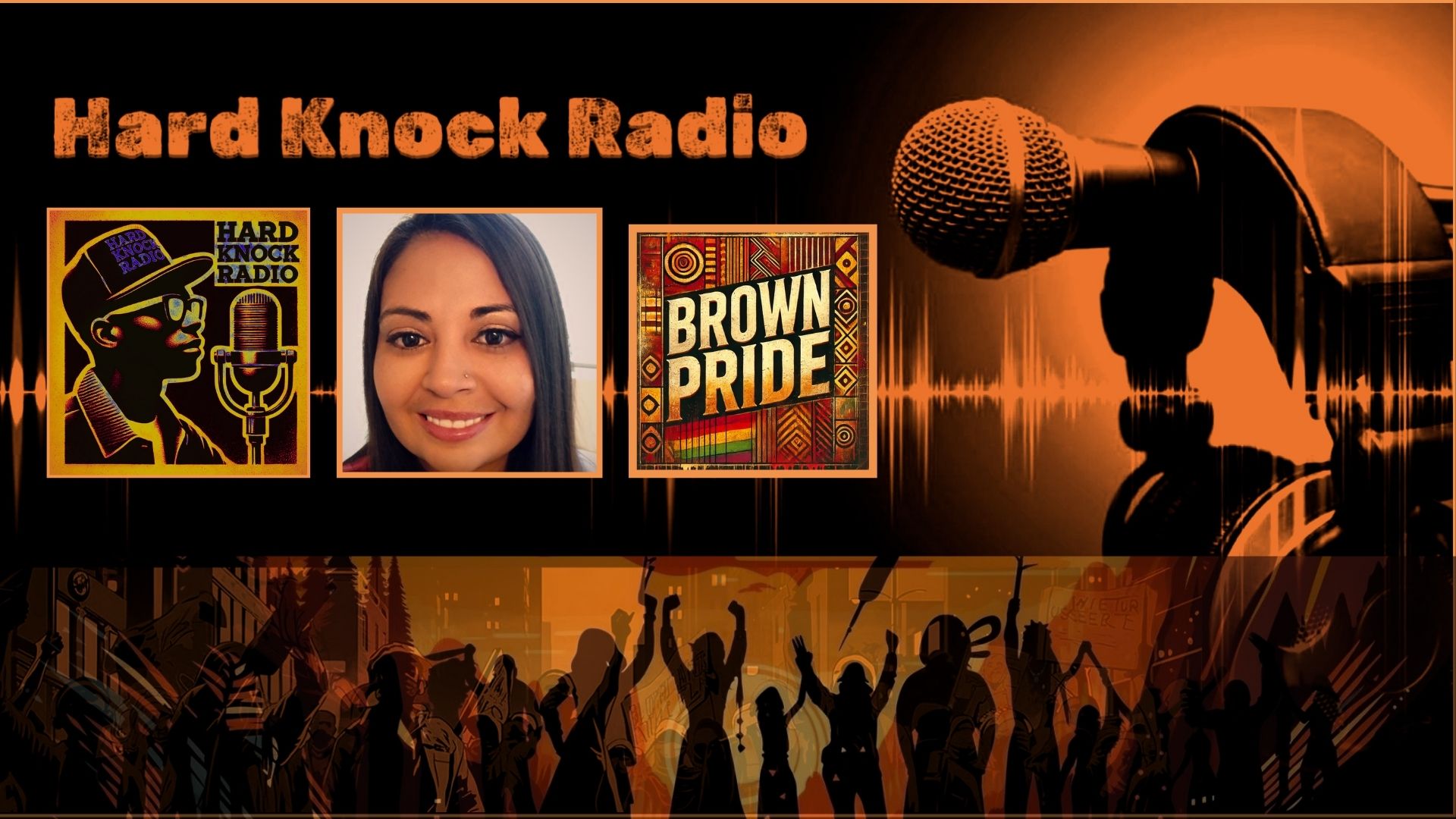(HKR-02-20-25) Hard Knock Radio’s latest session featured a profound conversation with activist Melinda, also known as Brown Girl Pride. This dialogue shed light on vital social justice issues, particularly concerning the Latino community and its complex relationship with racial identity and systemic oppression and white supremacy.
The Essence of Speaking Truth to Power
Davey D opened the show by emphasizing the importance of providing a platform for voices that challenge misleading narratives and harmful stereotypes within the community. He introduced Melinda, who has been utilizing her social media presence effectively to address significant misconceptions, especially around the notion of Latinos voting in large numbers for conservative causes and the pursuit of proximity to whiteness within the community.
Melinda’s Journey of Awakening
Melinda shared that her journey of activism began paradoxically in the military, a place where she encountered diverse racial and ethnic groups, which was different from her predominantly Mexican and white community growing up. This exposure started her on a path to decolonize her understanding of her own identity and the broader social narratives fed to her through mainstream media.
Addressing Historical Erasure and Misinformation
A significant part of the discussion revolved around the erasure of historical truths, particularly concerning Latino histories. Melinda pointed out the detrimental effects of such erasures, not only in distorting public understanding but also in impacting the communities’ self-perception and political engagement. She stressed the empowerment that comes from reclaiming and teaching the true histories of oppressed communities.
The Role of Decolonization in Social Justice
Melinda and Davey D delved deep into the concept of decolonization, which Melinda described as a necessary, ongoing process of confronting and dismantling ingrained prejudices and systemic injustices that often manifest in racial, gender, and economic inequalities. She emphasized that decolonization involves more than just awareness; it requires a transformative approach to understanding and action.
A Call to Action Against Disinformation
Throughout the conversation, Melinda passionately argued against the disinformation rampant in political and media landscapes, particularly highlighting how false narratives about ethnic voting patterns can exacerbate divisions and perpetuate injustice. She called for vigilance and critical engagement with media to counteract these trends.
Challenging Misconceptions: The 52% Voting Statistic and Proximity to Whiteness
During the discussion, Melinda addressed the widely circulated statistic that 52% of Latinos voted for a conservative candidate, highlighting it as a flawed representation. She explained how this figure was misleading, based on inadequate sample sizes and premature data. This narrative oversimplified the diverse political views within Latino communities and ignored factors like voter suppression and misinformation.
Melinda also delved into the concept of proximity to whiteness, discussing how assimilation and identity are influenced by societal pressures. She argued that these pressures often lead some individuals within minority groups to align themselves with majority norms and values, which can include political affiliations, in an effort to gain acceptance or avoid discrimination. She also detailed how weaponized and circumstantial. It changes from region to region and emerges at various time periods as a way to divide communities and enhance the majority population.
Conclusion: Harnessing Media for Education and Empowerment
The discussion concluded with Melinda encouraging listeners to use every available platform to educate themselves and others. She highlighted her educational initiatives on social media, where she engages in book studies and discussions to deepen the understanding of indigenous histories and current social justice issues.
This powerful session on Hard Knock Radio not only illuminated the struggles and resistance of marginalized communities but also underscored the crucial role of media in shaping, challenging, and advancing the discourse around racial and social justice.


Leave a Reply